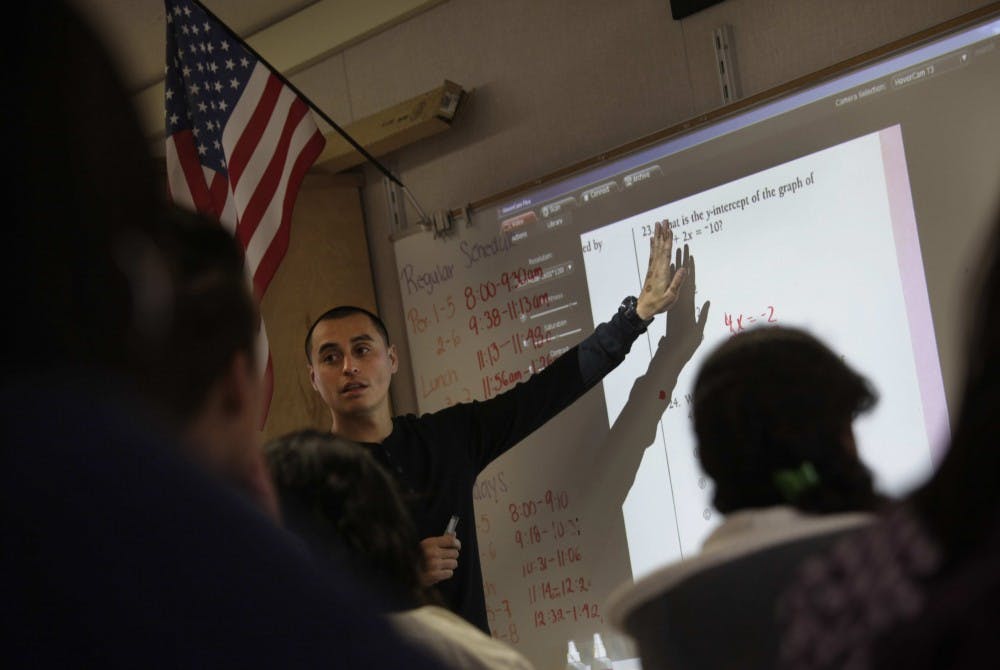As a native Puerto Rican going to college in the U.S., I speak both Spanish and English. To me, being bilingual is more than just a conversation starter: it allows me to actually connect with more people.
There are many benefits to being bilingual, including more opportunities in both the workplace and social settings. Knowing a foreign language can make you a better asset to companies here in the U.S. and abroad. (Some people even think that being bilingual can make you more attractive.)
For many people, speaking two or more languages is a foreign concept. As a general population, we fail to realize that second language proficiency is more common than we know. However, despite the fact that many people are bilingual, I believe still more people should be.
Considering our diverse population, the U.S. shouldn't be falling behind from the rest of the world in regards to multi-lingual people, but unfortunately, we are. There are plenty of accessible resources to learn new languages, and more people should make the effort to to seek those opportunities.
Sharing a language allows us to overcome barriers that culture might create.
"Language is a way for us as humans to give meaning to the world and what surrounds us," said Jose Juan Gómez, an ASU PhD student in Spanish Letters and Cultures, and ASU MLA/Mellon Connected Academics Research Fellow.
"People who share a language, share their way to view the world," he said. "The way that we see and understand the world is called culture."
Bilingualism in the U.S. is greatly influenced by immigration. Immigrants bring with them their native language, while also embracing the challenge of learning English.
Constant code-switching (sometimes referred to as Spanglish) among bilinguals immediately stands out to many monolinguals.
These patterns, especially in Arizona and other border-states that are greatly affected by immigration, lead to the belief that bilingualism is limited to heritage. To monolinguals, code-switching can also be intimidating and lead them to believe that learning a new language is hard and time consuming.
Bilingualism in the U.S. has been mostly one-sided in the sense that immigrants are expected to learn the native language of the land, and many native people have little interest in learning new languages.
Gomez believes that the lack of interest to learn a second language in the U.S. is mostly influenced by its cultural values that highlight what is considered to be American versus what is considered "UnAmerican."
"Belonging or trying to belong to another culture, is considered to be unpatriotic (UnAmerican)," he said.
There are many ways to learn or start learning a new language on your own. Rosetta Stone, Lang-8 and Duolingo are some of the online platforms to explore and become proficient in a new language.
College courses are also a starting point to bilingualism or even multilingualism. Unfortunately, in 2013, The Modern Language Association found only 7 percent of college students in the U.S. were enrolled in a second language course.
Despite the U.S's culturally diverse population and its role in international affairs, many scholars have said the U.S. is falling behind in foreign language education. Fifty-three percent of Europeans speak a second language while only 18 percent of Americans could have a conversation in more than one language.
The discrepancy is concerning.
There are multiple benefits to being bilingual, especially in today's global economy. In a social context, being fluent in another language can also allow you to truly connect with somebody from a different culture.
Some people believe that although they might be fluent in English, the conversation might be restricted because the person can't find the "proper words" in English to explain what he or she is trying to say.
It shouldn't be implied that a common language assumes an immediate, positive relationship with somebody, but sharing a language allows a better understanding of a person's true value and persona.
"Language is culture and therefore being bilingual makes you bicultural," Gomez said. "Speaking more than one language makes you a more social competitive person, as well as it develops more social skills such as how to better relate with people."
The most spoken non-English languages belong to minority groups that have gained second language proficiency as they arrive to the U.S. as immigrants. Many of them practiced and learned english in social contexts, rather than through academics. If they could learn your language, you can learn theirs: Second language proficiency could be higher.
Being bilingual and code switching is cool, but it's also not as hard as we make it seem to be. Anyone can become bilingual if they are willing to dedicate themselves to the process.
Reach the columnist at cmsanti1@asu.edu or follow @santiagoc_17 on Twitter.
Like The State Press on Facebook and follow @statepress on Twitter.
Editor’s note: The opinions presented in this column are the author’s and do not imply any endorsement from The State Press or its editors.
Want to join the conversation? Send an email to opiniondesk.statepress@gmail.com. Keep letters under 300 words and be sure to include your university affiliation. Anonymity will not be granted.




